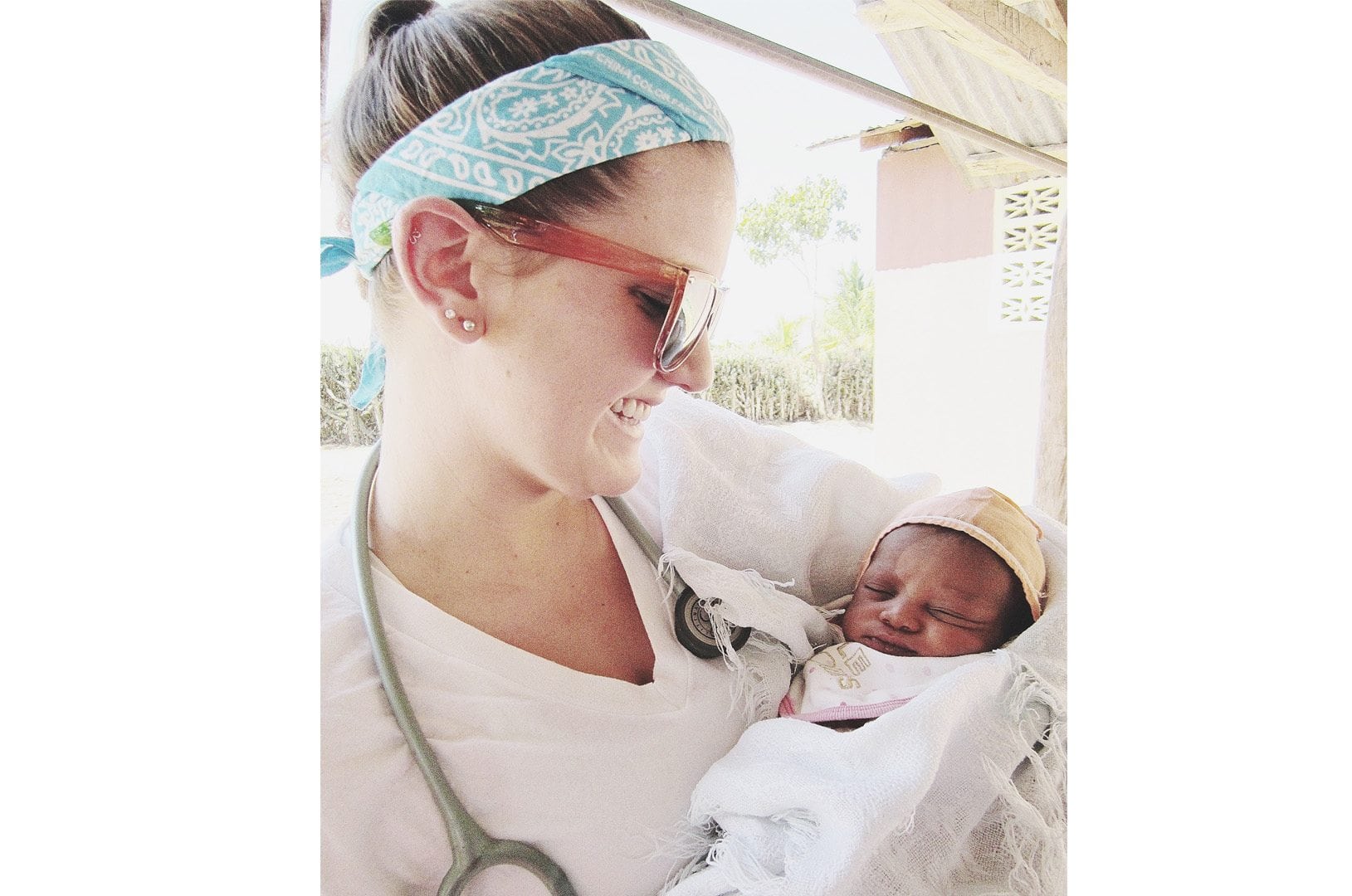A hospital is more than an edifice. It is a place where people seek care and comfort when they are at their most physically or mentally vulnerable. And a hospital cannot succeed in its lifesaving mission with without dedicated staff.
People like Shanon Pereira.
As a child, Shanon Pereira remembers seeing TV footage of the poverty in Haiti and vowing that one day she would do something about it.
Now, a nurse in Backus Hospital’s E3 Progressive Care Unit, Pereira spends her vacations on the impoverished island nation with her husband, working in a mobile health clinic and bringing vital care to people who would normally go without.
“In Haiti, if you don’t have money you don’t get health care. It’s that simple,” she says.
Pereira’s dedication is being recognized with a 2017 Healthcare Hero from the Connecticut Hospital Association that will be presented at its 99th annual meeting June 14 in Wallingford.
Pereira said she became a nurse to help people; and as soon as she became an RN seven years ago she and her husband began taking yearly medical missions to Haiti with the Groton Bible Chapel. One week each year they team up with local Haitian doctors to provide mobile health services in remote parts of the country, giving health assessments and care for a wide range of conditions from the common cold to malaria. Pereira also makes education a key component of her time in Haiti, teaching patients about hand hygiene, reproductive health and food safety.
The mobile medical team is able to disperse some medication thanks to contributions from companies back home. Pereira says something as simple as Tylenol—which many residents have never had access to—can make a world of difference.
“One man had a tumor [in his abdomen] that was so painful he couldn’t even button his pants. He was in tears from the pain. We were able to take his pain away temporarily. That means so much,” she says.
Pereira and her husband have also helped raise funds to build a permanent clinic adjacent to their sister church in Haiti to provide follow-up and continuing care for those who need if after a visit to one of the mobile clinics.
Pereira, a Type I diabetic since childhood, says her time in Haiti makes her appreciate access to health care in the United States.
“If I had Type I diabetes and I lived in Haiti, I would have died a long time ago,” she says.
She says this type of work is why she got into nursing.
“Caring and helping people when they are at their worst is at the heart of what [nurses] do. I want to help people that can never, ever, pay me back. That’s the rewarding part of this,” she says.

